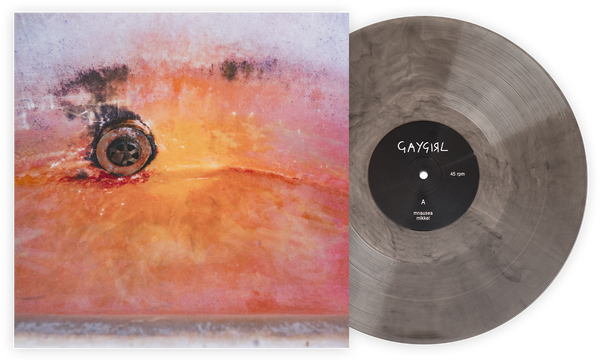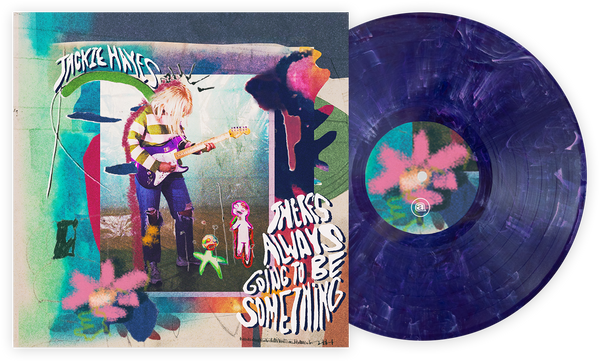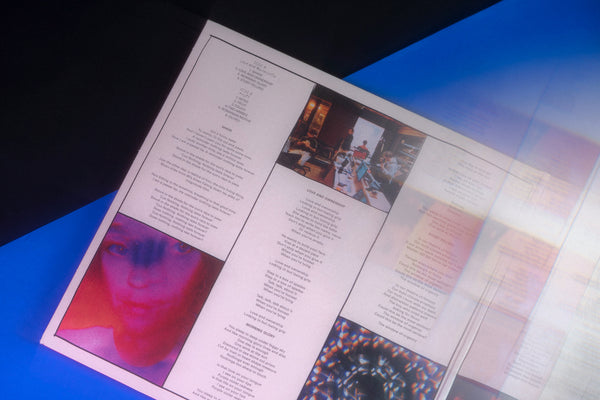Every week, we tell you about an album we think you need to spend time with. This week's album is John Prine's Tree Of Forgiveness, his first album in 13 years.
The road to making a late career album is usually paved with good intentions, but almost always riddled with the Potholes of Self-Compromise. Whether you’re making the album of your own volition or caving to mounting pressure from your label or manager, it means confronting the anxiety of writing new songs while pinned under the weight of your own legacy. You’re competing with yourself in the way all creative people do, but not necessarily with the exhilarating “I can do even better next time!” mindset of a younger artist who looks at the horizon and sees his/her creative highway extending forever. Your fans want to hear something familiar, but also want an album that shows you continue to push yourself as a songwriter and musician: aural proof that you’re determined to not become a cheap imitation of yourself like so many who’ve continued to record and tour into their 60’s and 70’s.
There aren’t many songwriters who’ve continued to write just as well, as freely, or as originally 30 or 40 years into their career—but it shouldn’t come as a surprise to anyone that John Prine is one of them. In the 1970s while many of his contemporaries were trying to navel-gaze their way to enlightenment or mistaking messy obtuseness for depth, Prine looked outward and wrote honestly; even at 24, an old soul who understood the world through empathy rather than self-interest. Now, at 71, it feels like his age is finally catching up to his outlook.
The Tree of Forgiveness is Prine’s first album of new songs in 13 years—and an album that can stand proudly next to any in the considerable body of work he’s developed over a lifetime. These songs sound like they were written for a reason, not out of a sense of obligation—though as Prine sheepishly admitted to me when I spoke to him in January, there was an element of coercion to making the album. “My wife is my manager now and my son is running [Oh Boy Records], and the two of them came to me last summer and said, ‘It’s time to make a record,’” he says. “They put me in a hotel suite downtown in Nashville. I took about ten boxes of unfinished lyrics down there with me—I looked like Howard Hughes checking in—and four guitars, and my suitcase. I just I holed up there for a week and wrote until I had 10 songs I wanted to use for a record.”
To me, this bit of context explains much about how good the album is—a creative process spanning decades and touching tons of talent: Older Prine finishing songs Younger Prine started years ago; 2017 Prine collaborating with Dan Auerbach, Roger Cook, Pat McLaughlin, and Keith Sykes; 2017 Prine collaborating with circa 1970s Prine and Phil Spector. Bonus: that Prine-Spector co-write—album highlight “God Only Knows”—came straight outta Phil Spector’s foyer: “I went over to the house and Spector’s crazy—he’s loony as a bedbug,” says Prine. “He’s got two bodyguards around him all the time, they’re both carrying guns. As I’m going to leave that night, we walk by the piano [right inside the front door]. Phil sits on the bench, hands me a guitar—and he becomes totally normal when he’s playing music. We wrote a song in a half hour.”
Forgiveness is clean and evocative—beautifully produced, no unnecessary flourishes or gratuitous instrumentation, the focus on Prine’s voice, changed but not diminished by multiple surgeries and radiation treatments for a cancerous tumor in his neck. The album isn’t overly mellow or sepia-toned, but age lends added dimension to themes that often show up in his songs. Time’s ability to heal us and capacity to steal from us takes center stage throughout, as does the emotional fallout from avoiding hard but necessary conversations—seen in the lovely “Summer’s End,” a song rendered even more vivid and affecting because it’s structured according to the loose, organic logic of remembering, and the heartbreaker “No Ordinary Blue,” a raw and honest description of the holes we fill in one another’s lives and the phantom connections that endure even after time tears us mostly apart.
Prine’s upbeat existentialism looks good on Age 71, since getting older simultaneously makes everything more meaningful and more meaningless, a perspective he inhabits fully on “Crazy Bone,” “When I Get to Heaven,” and “The Lonesome Friends of Science.” The former two are wry, whimsical reflections on a life lived to the fullest, even when time robs you of your abilities (“You’re half out of your head/ And you probably piss the bed”), and eventually, when it’s all over, does you a solid and gives them back (“[When I get to heaven] I’m gonna get a cocktail/ Vodka and ginger ale/ Yeah, I’m gonna smoke a cigarette that’s nine miles long”). And like Prine’s 1995 standout “Lake Marie,” “The Lonesome Friends of Science” uses one common theme to connect three very different stories: former planet Pluto, anthropomorphized as a sad-sack has-been haunting Los Angeles; Birmingham, Alabama’s gigantic steel statue of Vulcan, who’s buying a wedding present for his ex-lover and her new husband; and Prine himself, who’s advocating for science to take a cue from the humanities and know when to say “when.” Each of the three tales explores a different angle on the way seeking knowledge can sometimes bite you in the ass and reminds us that pushing for a deeper connection to someone or to the world at large can backfire and leave you forgotten and alienated. There’s a whiff of a “get off my lawn” attitude embedded in a sentiment like this, but it’s worth remembering that there’s roadkill on the highway to progress—and that reminder goes down easier with a charmingly out-of-tune piano and a few whimsical cautionary tales. It’s a perfect encapsulation of Prine’s songwriting, and an even more perfect encapsulation of something he seems to have always understood and something we all come to understand more with age: knowing what battles you can win, which ones are worth fighting even if you lose, and which ones aren’t worth your time and energy.
In his characteristic aw-shucks way, Prine doesn’t ascribe much significance to the title of this album, but not only does it make complete sense to think of forgiveness as a tree (a source of safety and shelter, firmly rooted), I also see forgiveness everywhere in these songs. Their characters are thoughtful and tender, willing to take accountability, eager to neutralize conflict or wipe clean their moral or emotional slates. Forgiveness is a theme I have almost no interest in hearing a young artist tackle, because it’s a skill even the kindest and most emotionally intuitive among us don’t truly master until late in life. To forgive demands humility, empathy, and resilience—untempered by pride, Youth’s eternal handicap. Forgiveness is finding strength in vulnerability—the ability to look someone straight in the eye and humble yourself before them (the exact pose Prine assumes on the album’s cover)—to take a situation seriously but still laugh at yourself. Strength in vulnerability, finding light in the dark corners: there’s no better attitude any of us can hope for, and no better encapsulation of Prine’s gifts.
Susannah Young is a self-employed communications strategist, writer and editor living in Chicago. Since 2009, she has also worked as a music critic. Her writing has appeared in the book Vinyl Me, Please: 100 Albums You Need in Your Collection (Abrams Image, 2017) as well as on VMP’s Magazine, Pitchfork and KCRW, among other publications.
Join the Club!
Join Now, Starting at $44Exclusive 15% Off for Teachers, Students, Military members, Healthcare professionals & First Responders - Get Verified!












